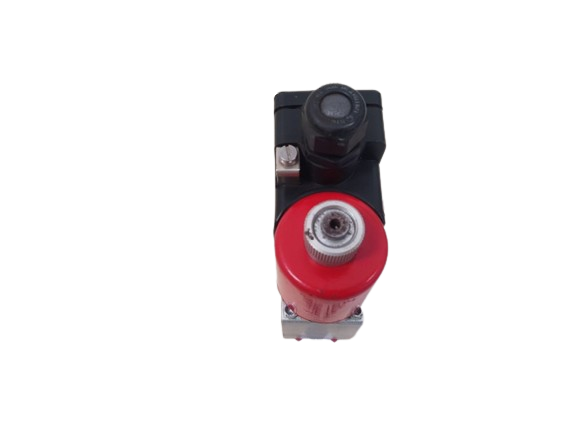Control valves are one of the crucial component in marine automation. They ensure smooth sailing and efficient running of any vessel. Whether it controls fluid flow or balances an entire system, control valves play a crucial role in just about any application on shipboard. This wide-ranging blog explores their functionality, value, and application in marine automation-that's why they are irreplaceable for the current marine industry.
What Are Control Valves?

A Control Valve refers to an apparatus in charge of fluids including liquid, gaseous fluids, as well as the flow passage where changes of dimensions influence. In such cases, a control valve makes some form of response to changes occurring from signals of its controller. That way, changes are registered regarding the marine systems with desirable outcomes. Thus, such control valves apply with actuators. However, different kinds include pneumatic and hydraulic or electric varieties to meet particular applications.
Importance of Control Valves in Marine Automation
Marine automation are very much dependent on control valves to maintain precise operations in several systems, including propulsion, fuel management, and cargo handling. The following are the reasons why control valves are important:
- Precise Flow Regulation: Control valves maintain the optimal flow rate, ensuring efficient system performance and avoiding wastage.
- Improved Safety: They help prevent system failures by regulating pressure and maintaining stability in critical systems.
- Energy Efficiency: Proper flow control decreases energy usage, so that savings are achieved and environmental effects diminished.
- Reliability in Harsh Environments: Control valves are designed to meet the demands of the extreme marine environment, which entails saltwater exposure and pressure.
Types of Control Valves in Marine Automation
There are various kinds of control valves that are applied to marine operations. All have been developed for various operational needs:
- Globe Valves: Globe valves have the advantages that they can accurately throttle the fluid flow and thus have a preference in most of the applications where adjustment to fuel or cooling water is required.
- Ball Valves: These are apt in fast-close services and satisfactorily operate with minor leakage.
- Butterfly Valves: Butterfly valves have low weight and compact construction. They are mainly applied for HVAC ballast water treatment.
- Gate Valves: It can be used for applications that require full flow or absolute shut off such as bilge and ballast systems.
- Diaphragm Valves: These types are suitable for corrosive liquids handling and are very used for chemical dosing system purposes.
Main Features Of Marine Control Valve
- Resistance to Corrosion: For example, marine control valves utilize stainless steel and bronze in the design of materials since it is resistant to the corrosive effects of sea saltwater. They are designed to withstand extreme temperatures, high pressures, and continuous running.
- Compact Design: Vessels have limited space onboard, so control valves are designed to be compact and lightweight.
- Automation Compatibility: Present control valves can be fitted into automated systems to allow remote operation and monitoring.
Applications of Control Valves in Marine Automation
Control valves are applied in all marine systems. Some key applications include:
- Propulsion Systems: Control valves regulate fuel supply and cooling water flow in propulsion systems, ensuring efficient engine operation and optimal performance.
- Cargo Handling Systems: In tankers and bulk carriers, cargo flow like oil, chemicals, and dry bulk materials is taken care of by control valves, making loading and unloading safe and efficient.
- Ballast Water Management: Control valves will be needed to control ballast water flow, important for stability of a vessel as well as compliance with environmental norms.
- HVAC Systems:Control valves are necessary in the HVAC systems on board a ship to control airflow and temperature to maintain comfort levels for crew and passengers onboard.
- Firefighting Systems: Control valves are part of fire suppression systems because they provide an accurate supply of water, foam, or other extinguishing agents during emergencies.
- Wastewater Treatment: Valves handle the wastewater and sewage flow so that efficient treatment and discharge are carried out according to marine rules.
Advantages of Using Control Valves in Marine Automation
- Better System Performance: Control valves enhance the performance of marine systems so that smooth and efficient operations can be achieved.
- Less Maintenance Cost: High-quality control valves reduce the wear and tear on equipment, thus reducing the time spent in downtime and maintenance costs.
- Environmental Compliance: The precise control of emissions and waste ensures that vessels adhere to the strict environmental regulations.
- Enhanced Safety: The right flow regulation prevents overpressure and system failure, thereby safeguarding crew and equipment.
Trends in Marine Control Valves
The marine industry is witnessing innovation in control valve technology because of increasing demand for efficiency and sustainability:
- Smart Valves: With sensors and IoT connectivity, smart valves can monitor and do predictive maintenance in real-time.
- Environment-friendly designs: Valves are coming up with the view to reduce emission and add on energy efficiency.
- Special Application: There are varieties of vessels which need tailor made control valves that fit them.
Control valves are the foundation of marine automation. They allow smooth, safe, and efficient operation in any system aboard the vessel. Their role, starting from propulsion to wastewater management or other onboard systems, is necessary for the performance and reliability of modern vessels. Investing in good-quality control valves, their integration into automated systems, and maintenance will get marine operators enhanced operational efficiency, cost savings, and industry standards compliance. As technology continues to evolve, the future of marine control valves is promising to hold even bigger advancements in smart and more sustainable marine operations. This means upgrading an existing system or designing new vessels so that control valves are on top of everything to guarantee seamless marine automation.





Validate your login
Sign In
Create New Account